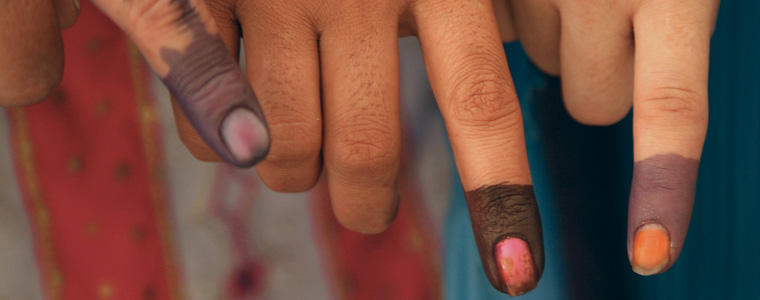Political imperatives and a slight ebbing of violence in Iraq will allow the next stage of the country’s planned provincial elections to proceed tomorrow in Anbar and Nineveh provinces. But the small kernel of hope engendered by a June 1 meeting of national political leaders to try to ease tensions needs urgent follow-up by the newly elected officials and the international community to stem the cycle of attacks that have reached levels not seen since the height of post-Saddam Hussein violence in 2008.

The newly elected leaders will need to work together and engage their constituencies seriously to understand and respond to the real priorities of citizens, rather than masking failures and power grabs behind artificially-inflamed ethnic rivalries. The international community can work with all parties and use the strongest political leverage to urge a peaceful resolution of differences through dialogue.
Tomorrow’s planned council elections in the majority-Sunni Anbar and Nineveh provinces were delayed by the Iraqi Council of Ministers for security reasons as public protests extended for months. Twelve other provinces held their voting on April 20th, the first elections in Iraq since the U.S. withdrew its forces at the end of 2011. Council elections continue to be delayed for various reasons in Kirkuk Province and three provinces of the Kurdistan Region.
Sunni leaders believed the delay in Anbar and Nineveh was spurred by Prime Minister Nouri al-Maliki seeing the public protests critical of his rule and wanting to avoid his opponents making larger political gains. Protesters had demanded, among other things, the release of female prisoners, the repeal of a law aimed at culling members of former dictator Saddam Hussein’s Ba’ath Party from official ranks, and suspension of the death penalty for those convicted under an anti-terrorism law.
Violence had skyrocketed leading up to the April elections and since then, most markedly in the tragic events of Hawija in the northern Iraqi province of Kirkuk on April 23rd. That’s when the Iraqi security forces stormed a square where protestors were gathered, leaving more than 50 people dead and 100 injured. Violent reactions followed in Sunni-dominated areas, and many fear the cycle of violence that has ensued brings Iraq to the brink of civil war again.
Targeted attacks before, during and since the April vote have killed candidates and workers of the Independent High Electoral Commission (IHEC). Hundreds other electoral commission employees have quit under threat. All told, the United Nations recorded more than 1,000 people killed in May alone as a result of terror attacks and other acts of violence, the most since 2008.
Among the factors opening the way for the June 20 elections in Anbar and Nineveh were sustained U.S. pressure and a June 1 meeting hosted by Ammar al-Hakim, whose party made the most gains in the April 20 vote. The meeting of Iraqi leaders, including Maliki and Osama al-Nujaifi, Speaker of the Council of Representatives, contributed to a relative easing of political rhetoric on all sides.
Even though the number of violent attacks and casualties remain high, sources in Iraq now speak of a drop in sectarian targeting and the illegitimate checkpoints that were re-emerging in May. If nothing else, the June 1 meeting and the perception that rhetoric and violence has eased even slightly, combined with political pressure that Maliki might be feeling from the domestic turmoil and the April election results, creates an opening for dialogue that should be seized.
Observers expect the alliance formed by al-Nujaifi to do well in the elections, but it is unclear how much of the splintered Sunni base and leadership will rally around him. The grievances of the Sunni population remain and may trigger other demonstrations and more violence. Politicians may try to mobilize the public again to keep the pressure on Mr. Maliki in the run-up to the 2014 national elections.
The spillover effects of the conflict in neighboring Syria also may increase as that conflict becomes more sectarian. Just as Lebanese Hezbollah is stepping in more aggressively to defend Syria’s President Bashar al-Assad because they’re afraid his demise would make them vulnerable, so too Sunnis in Iraq favor his demise as a potential Sunni regional triumph. And while Iran has worked to ease tensions in Iraq between the capital Baghdad and the Kurdish regional headquarters in Erbil, leaders in Tehran may be content with a certain degree of conflict in Iraq to keep Sunnis occupied and away from Syria.
So the overall triggers of more violence are still there. Running on ethnic and sectarian platforms, instead of good governance, economic development and better lives for citizens, only heightens tension and violence, even in provinces where one ethnicity or sect dominates.
The constructive elements of the Iraqi government and civil society still need technical assistance to maintain their strength in the face of these formidable challenges. International support remains in dire need for maintaining peace, democratic governance, and human rights.
Manal Omar directs USIP’s Iraq, Iran and North Africa programs. Sarhang Hamasaeed is a program officer with USIP's Iraq and North Africa programs.



